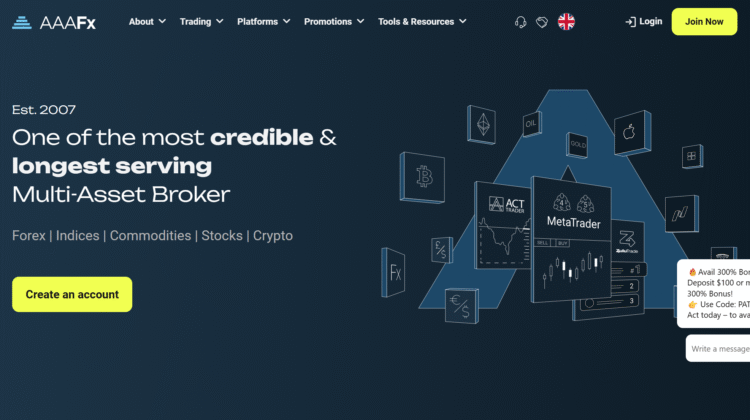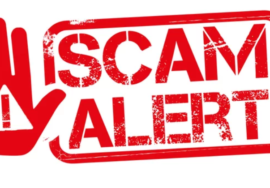
8 Critical Warning Signs Why AAAFx (aaafx.com) May Be Risky Don’t Ignore These
8 Critical Warning Signs Why AAAFx (aaafx.com) May Be Risky Don’t Ignore These

Main Body
AAAFx is a forex & CFD broker operating globally (aka Triple A Experts, headquartered in Greece, with regulatory oversight also in South Africa via the FSCA). On the surface, they offer attractive conditions: MT4/MT5, ECN accounts, access to ZuluTrade social trading, and low-to-zero spreads claimed on some pairs. But multiple user reports, review site complaints, and regulatory mentions suggest notable red flags that any serious trader should weigh before depositing. Here are the strongest warnings.
1) Withdrawal Failures & Delays
Perhaps the most recurring complaint: AAAFx users struggle to withdraw funds.
- On Trustpilot, several 1-star reviews say: “At first everything looked fine, but when it came to withdrawing my funds, they simply refused.”
- On ForexPeaceArmy, there are reports of withdrawals being “pending” for weeks, with support giving vague responses.
- Review platforms like RatingFX mention that withdrawals can take more than two months in some cases.
If a broker cannot reliably return funds in a reasonable timeframe, that’s a major trust issue.
2) Complaints about Profitable Trades Being Blocked or Orders Closed
Some traders say that once they achieve profits, AAAFx imposes obstacles: orders being closed prematurely, stop-loss being ignored, or “profitable trades” being penalized in ways that are hard to prove.
These kinds of practices—if true—are serious because they go beyond fees or lag into possible manipulation of trade outcomes.
3) Mixed & Polarized User Reviews
Review sentiment is highly mixed:
- Many users praise AAAFx for tight spreads, fast platform execution, and smooth trading experience.
- Others strongly oppose it, citing non-payment, suspended accounts, or very poor customer service.
This polarization means risk of experience depends heavily on region, account type, or volume—a sign to expect inconsistent outcomes.
4) Regulatory Oversight—but Not Everywhere
AAAFx is regulated by:
- The Hellenic Capital Market Commission (HCMC) in Greece.
- The Financial Sector Conduct Authority (FSCA) in South Africa (Triple A Experts / Sikhula Venture Capital FSP No. 49299).
These are meaningful regulators. However, there are parts of their service (like “International” or non-EU branches) that operate under weaker regulatory scrutiny. For those branches, protections may be far less.
5) Regional Restrictions & Hidden Costs
Forums and Reddit threads mention:
- Inflexibility around withdrawal methods (you may need to withdraw using the same method used to deposit).
- Hidden commissions or charges particularly on “bonus” or promotional funds. Some say bonuses are provided but then disallowed or offset in unexpected ways, limiting ability to withdraw profits.
These are risk factors for traders who assume all terms are clear from the website.
6) ZuluTrade / Social Trading Integration
AAAFx offers ZuluTrade / social trading, which some traders find attractive.
Yet, some reviews claim that social trading signals or “copy trades” perform poorly in comparison to expectations, possibly due to slippage, delays, or differences in execution. That is a common risk with social trading tied to any broker with mixed feedback.
7) Customer Support & Verification Hurdles
- Many traders say verification (KYC) takes long, or that documentation submitted gets rejected repeatedly.
- In some cases, small technical issues are blown up because support is slow or unhelpful. When money is involved, those kinds of delays are more than inconvenient—they can cost.
8) Good Features & Some Positives
To be fair, there are strengths:
- Many users report tight spreads (especially at times of low volatility) on major forex pairs.
- The broker supports both MT4 and MT5, social trading (ZuluTrade), multiple account types including zero-commission / ECN style options.
- Some reviews say execution speed is good, especially for smaller trades, and that tools/platform reliability is decent.
These features make AAAFx not useless or entirely fraudulent—but the positives must be weighed alongside the warnings.
Embedded Scam-Keywords
- withdrawal refusal risk
- profit lock-in trap
- regional regulation mismatch
- execution manipulation alert
Conclusion
AAAFx is a layered broker. It has been around for many years (since ~2008), has real regulation in Greece (HCMC) and in South Africa (FSCA), supports major trading platforms, and offers features many traders appreciate (ZuluTrade, low spreads in some conditions, multiple account types). These are important foundation stones.
Yet, despite those strengths, there are multiple red flags that can’t be ignored if you care about safeguarding your funds and ensuring fair treatment.
The biggest concern is withdrawals. When multiple users across forums and review sites say that their money was not released, delayed for long periods, or tied up due to unclear conditions (bonus-deductions, verification bottlenecks), that’s a serious indicator. If a broker works well when you deposit, but fails when you try to extract profits, that asymmetry is a hallmark of many broker controversies.
Profit-related friction is another alarm. Reports of profitable trades being restricted, closed, or stop-loss orders being ignored raise questions of fairness. It may be hard to prove in many cases, but the frequency and similarity of the complaints suggest more than coincidence.
Regulation helps, but isn’t a guarantee. AAAFx’s regulated branches offer more protection, but international or “global/international” branches may have looser oversight. Traders using those should recognize they are assuming higher risk. Regulatory bodies like HCMC and FSCA are credible, but protections vary by jurisdiction. For example, leverage may be limited under EU rules, but could be higher elsewhere; consumer complaint mechanisms might differ dramatically.
For potential traders: if you’re considering using AAAFx, take these steps to protect yourself:
- Start with a demo, then make a small deposit, and do a withdrawal test immediately. See if withdrawal is processed, how long it takes, what fees are applied.
- Document everything — screenshots, confirmations, deposit receipts, communication with support. If something goes sideways, you’ll want proof.
- Clarify your account type and entity. Which branch are you under? Which regulator covers your account? What are the leverage limits, rules for bonuses, etc.?
- Read user reviews focused on withdrawals and profit claims — actual stories, not just polished testimonials.
- Avoid bonus or promotional offers unless you clearly understand all conditions — sometimes bonuses impose conditions that make profit withdrawal hard or costly.









